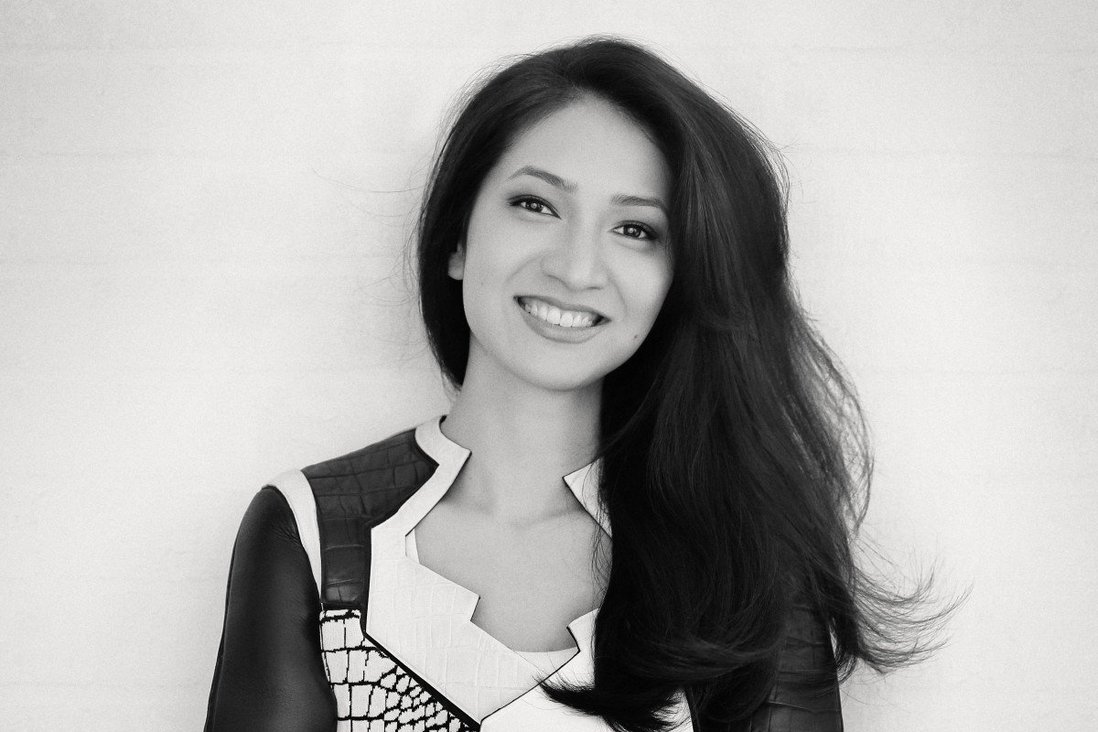Ong Shunmugam Founder Claims Chinese Women 'Progressed Faster' Than Malay & Indian Women
Priscilla Shunmugam went further by equating "shaking hands with men" being a sign of how Chinese women were able to join the traditional workforce, while Indian and Malay women were tied in social shackles.
Recently, a clip of the founder and designer behind Singapore-based womenswear Ong Shunmugam went viral on Instagram. In it, Priscilla Shunmugam made racist remarks against Malay and Indian women.
Priscilla, who was born in Kuala Lumpur to a Chinese mother and an Indian father, was speaking during a webinar organised by the Asian Civilisations Museum (ACM), one of the pioneering museums in Singapore.
The clip is actually an excerpt of the webinar titled "designing Singapore's contemporary fashion identity" that was livestreamed and posted on ACM's Facebook page in September last year. However, it only found prominence last week when the webinar caught the attention of an Instagram page called kebaya.societé.
On Friday, 25 March, an admin behind the page uploaded a two-minute snippet of the webinar, while calling out Priscilla for espousing a racist and false narrative about Malay and Indian women in the region.
Priscilla was asked as to why the cheongsam — a traditional Chinese dress worn by women — is a recurring silhouette in her work
According to the 40-year-old designer, the reason she works more with cheongsam is that she feels that she have more fun with it as "the simple reality" is that "Chinese women can be more receptive".
While answering why she chose to feature more Chinese ethnic wear, the Ong Shunmugam founder equated modern western clothing with social progressiveness and claimed that "Chinese women have progressed significantly faster and further as compared to their Malay and Indian counterparts".
She justified her racist viewpoint by saying that this is not a modern-day phenomenon and that the progressiveness of Chinese women is just something that has been the way it's been since the 1960s.
She claimed that before she started her design brand she did some research, which was about the emancipation of Asian women, and that it showed Chinese women were quick to adopt Western dressing.
The Singapore-based designer also reduced "progressive" thinking to mere physical touch because her "research" showed that "Chinese women were the first Asian women to shake hands with men"
"Culturally, it was acceptable for Chinese women to shake the hands with men," she said while emphasising how this was long before it was "acceptable" for Indian and Malay women to do so.
And this, according to Priscilla, is also represented in how quickly "Chinese women were culturally the first Asian women to adopt Western dressing. So whether it was the dress or mini skirt".
She went further by equating "shaking hands with men" being a sign of how Chinese women were able to join the traditional workforce, whether it was working in a factory or working as a teacher.
"I think this is very much tied to just their own social realities, so what was acceptable in their own communities. So we need to ask ourselves, 'were Malay women allowed by their husbands or fathers or brothers to dress a certain way, to go out and work, to perform certain duties that they hadn't been done?'"
And, that the same can be asked about Indian women, she added.
"How soon were they (Indian and Malay women) released from social shackles? If you studied that, if we understand that, then the fashion answers come from there (that Chinese women are more progressive)."
The kebaya.societé Instagram page, while calling out Priscilla's remarks, stated that progressive is a mental state of mind, not physical
The page then pointed out how Malay women were already educators, entrepreneurs, and businesswomen as early as the 1940s, and named Hajjah Fatimah as an example. Believed to have been born in 1754 to a family of successful traders in Malacca, Malaysia, she was a Singaporean merchant and philanthropist.
"It's perfectly fine for you to incorporate the cheongsam in your collection, that's absolutely your choice, but there's no need to give a false, skewed, and myopic and might I add racist narrative to your response. It's narratives like yours, that yours that is anything but progressive," the page stated.
At the time of writing, the clip has gone viral with over 200,000 views on the page. While the original ACMtalks video, which was an hour-long, has since been removed from the museum's Facebook page.
Amidst the controversy, Priscilla issued a statement to the media, saying that she should have been "crystal clear" with her answer and that she acknowledges it was "clumsy, hurtful, and insensitive"
"It was also uncharacteristic of the narratives championed in my work," read her statement.
The Ong Shunmugam founder added that she is "rightly being held accountable" for what she said and that she apologises "unreservedly for the comments I made".
Separately, ACM has also issued its own statement.
In the statement, ACM director Kennie Ting said that they could have done a better job in moderating and managing the webinar and that the museum has learnt a very important lesson.
"Our moderator has shared with us that she found it difficult to react immediately in a live setting. It would have been appropriate that these remarks were addressed swiftly and decisively," read the statement.
